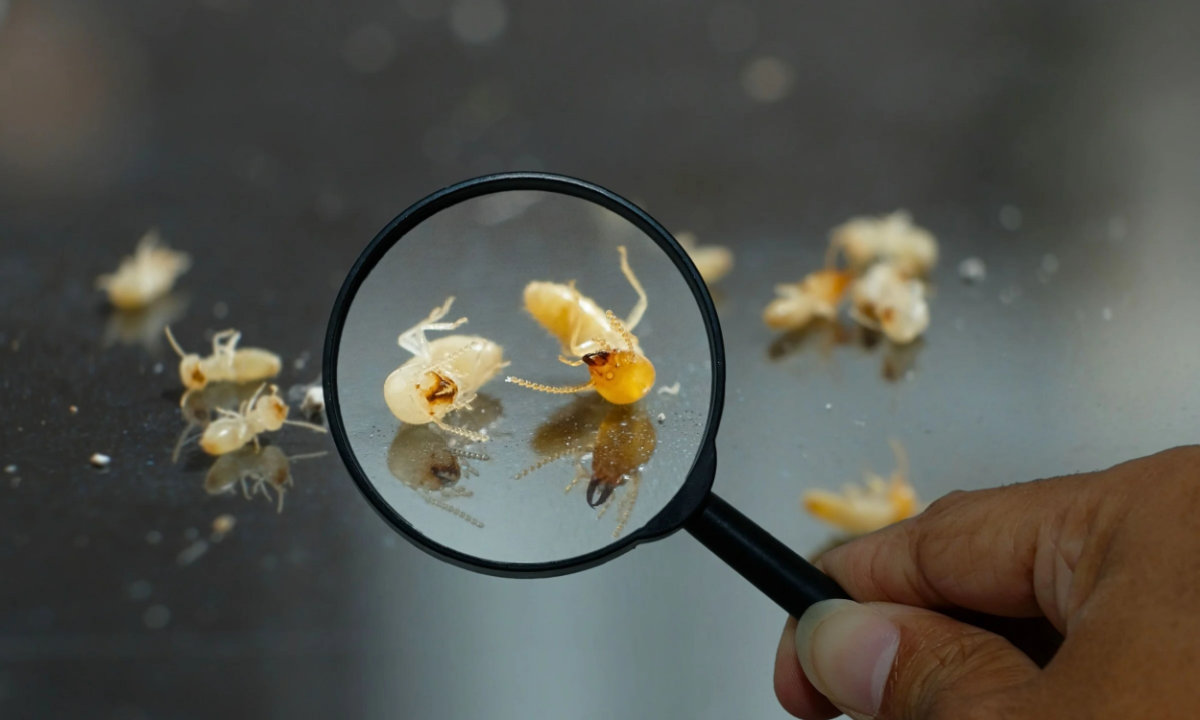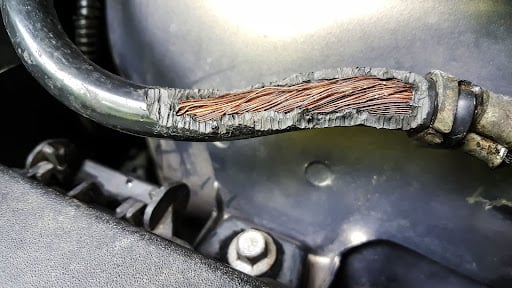Living in New Jersey, you’ve likely dealt with a fair share of insects, whether it’s spiders or bed bugs.
One common pest you’ve probably dealt with on those muggy summer afternoons is the pesky and relentless gnat. These small, two-winged flies are known for irritating behaviors, a high probability of spreading disease, and rapid reproduction habits.
There are several ways to eradicate these unwelcome pests from your home if you’re in the midst of a gnat infestation. Still, before that time comes, it’s important to have a general knowledge of the insects.
Gnat Overview: What Are They?
The word “gnat” tends to encompass a wide variety of small flying insects in the suborder Nematocera, generally in the families Mycetophilidae, Anisopodidae, and Sciaridae. Several common species are often labeled “gnats,” including:
- Black flies
- Midges
- Fruit flies
- Fungus gnats
- Drain flies
- Biting midges
In any case, gnats are a common annoyance for homeowners in New Jersey, begging the question: how do you get rid of them?
Common Ways to Get Rid of Gnats
There are several ways to get rid of gnats in and around your home, both DIY and professionally. To begin, we’ll look at ways to eradicate gnats outdoors.
Outdoor Gnat Control
Outdoor gnats can be a huge inconvenience during a barbeque or a relaxing sunny evening, especially if you live near a stream or other body of water. This is because gnats use stagnant water as a breeding ground, laying their eggs, which soon hatch into nymphs.
As these insects tend to fly in clouds, or “swarms,” it’s not uncommon to become overwhelmed by these small, pesky flies. From flying into your face, eyes, and nose to dropping into your drinks, gnats are a major pest for those looking to enjoy their outdoor spaces.
However, there are several ways to avoid gnats and make your outdoor living spaces more enjoyable.
Avoid the Sweets
Gnats are often attracted to sweet scents, including fruits, strong perfumes/colognes, and scented soaps/moisturizers. To combat gnats outdoors, try keeping the sugary drinks and foods inside and switch to unscented beauty and hygiene products.
Gnat-Repelling Plants
Several herbs and flowers produce an aromatic scent that, while pleasant to humans, is absolutely appalling to gnats. Lemongrass, lavender, and marigolds are some such plants; try planting them near your outdoor living space to naturally repel insects while adding some color and greenery!
Bug Zappers
Bug zappers are a useful tool on every patio, attracting and killing all sorts of flying insects, including gnats. Zappers tend to use ultraviolet light as bait, attracting gnats to the zapper’s electrically charged mesh. Then, when the insect flies too close, the electric current handles the rest, significantly reducing the number of pests in the immediate area.
Indoor Gnat Control
If you think swatting at gnats outside is bad, imagine them taking over your kitchen or bathroom! Unfortunately, gnats, especially fruit flies, drain flies, and fungus gnats, are common in New Jersey homes.
These insects are primarily attracted to rotten fruit and compost, often found in drains, trash receptacles, and even on your counter in the fruit basket. Unfortunately, with a plentiful source of food and water, these insects will rapidly multiply, leaving your house infested! Fortunately, there are several DIY tips to take care of indoor gnat infestations.
– Fly Paper
This practice is relatively simple, inexpensive, and easy.
Purchase a roll of fly paper at any hardware store; this paper is coated in a strong, fragrant adhesive that attracts all sorts of household pests, including flies and gnats.
Place the paper in an area where gnats are generally present; as the insects are drawn to the scent, the adhesive paper traps and eventually kills them.
– Make an ACV Trap
Another common remedy is an ACV trap, created with a few basic household ingredients. Mix together water, a squirt of dish soap, apple cider vinegar, and a couple of tablespoons of sugar in a medium-sized bowl. The sweet, pungent aroma of the ACV and sugar will draw the gnats in, and the dish soap and water will quickly trap and drown the pests.
– Bleach
Bleach isn’t just a cleaning solution; it can also be used to kill pesky drain flies. Simply mix a 50/50 solution of bleach and water and pour it down the affected drains. Not only will this mixture kill the pests, but it will also kill off odor-causing bacteria in the drain!
Additional Solutions
Pesticides
In extreme cases, pesticides may help eradicate an infestation. However, it’s important to always use these chemicals responsibly and follow the manufacturer’s guidelines, as improper usage is illegal and may result in serious injury or illness.
Since pesticides and insecticides should only be used as a last resort, we’ll review some quick pros and cons of chemical use.
Pros
- Highly effective
- Long-lasting
- Kills on contact
- Readily available
Cons
- Potentially harmful to humans and pets
- Difficult to contain in a singular area
- May kill off beneficial insects
- Must take extreme caution when using
For this reason, we recommend seeking professional assistance when resorting to pesticides.
Preventative Measures
Perhaps the most effective form of pest control is taking preventative action; you won’t have to treat an infestation if it can’t develop in the first place! With these simple tips, you’ll have a fighting chance of preventing gnats from settling in your home.
– Keep Your House Tidy
Since gnats primarily feed on fungus, rotting fruit, and garbage, one of the most important prevention steps is keeping a clean house. Monitor the condition of the garbage and dishes.
If possible, take out the trash as soon as it’s contaminated with food waste or full.
Additionally, rinse any dishes left in the sink to prevent old food from attracting pests.
– Store Fruit and Vegetables In a Pantry or Refrigerator
One of gnats’ primary food sources are ripe fruits and vegetables, making those soft, ripe peaches in your fruit basket the perfect gnat snack. So store fruits and vegetables out of the open to prevent gnats from having easy access. Food particles can also attract other pests, like New Jersey rodents, so try and keep your home free of any trash or rotting food.
– Routinely Change Potting Soil
Fungus gnats have been known to lay eggs in potting soil that’s become overly saturated with water. If you notice these tiny insects hanging around your plants, it’s likely time to change your potting soil, or at least hold off on the watering until the soil’s dried out considerably.
Professional Assistance
If DIY methods just aren’t having the effect you were hoping for, or if you simply don’t wish to tackle a gnat infestation yourself, professional assistance is only a phone call away with your trusted local pest professionals at Anchor Pest Control. With various home treatments, your house can be gnat-free in no time.
Quick Q&A Recap
What are gnats?
“Gnat” is a general term used to categorize any number of small fly species in the order Nematocera. While some Entomologists categorize gnats as “non-biting” flies, it’s common to refer to midges, biting midges, black flies, fruit flies, drain flies, and fungus gnats as simply “gnats”.
What attracts gnats?
Typically, gnats are attracted to the sweet smell of decay, whether that be fungus, food waste, or rotting fruit. Additionally, some gnats are attracted to sweet scents in colognes, perfumes, or moisturizers, making those wearing them especially likely to attract gnats.
Should I use pesticides at home?
While pesticide usage should be assessed on a case-by-case basis, it’s typically considered a last resort if other, less-toxic methods have already been exhausted. Most pesticides can be toxic to humans and pets, making it essential to use these products with extreme caution. For any questions regarding pesticide usage, contact your local pest control experts.




